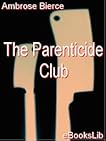
I'm introducing a poem written by Jonathan Ashbach, inspired by Milton, with a segment of Alexander Pope's
Essay on Man. Cause I feel like it.
Go, wiser thou! and in thy scale of sense
Weigh thy opinion against Providence;
Call imperfection what thou fanciest such;
Say, here he gives too little, there too much;
Destroy all creatures for thy sport or gust,
Yet cry, if man's unhappy, God's unjust;
If man alone engross not Heav'n's high care,
Alone made perfect here, immortal there:
Snatch from his hand the balance and the rod,
Rejudge his justice, be the god of God.
In pride, in reas'ning pride, our error lies;
All quit their sphere, and rush into the skies!
Pride still is aiming at the bless'd abodes,
Men would be Angels, Angels would be Gods.
Aspiring to be Gods if Angels fell,
Aspiring to be Angels men rebel...


Abdiel
by Jonathan Ashbach
Ten thousand angry hosts of hosts
Sure ranks of vicious peers
The shining angel compass round
Encroaching on him while the sound
Of heav’nly arrows raging round
Comes winging to his ears.
His brothers on him press all in,
The tarnished angels hurry near
And thunders to and fro are thrown
And swords of heaven meet his own
While horns as old as God are blown
Yet none of them he fears.
Yet suddenly the tumult stills;
The violent host is awed.
The thronging armies all give way
And yet they yield not him the day,
For on is coming, so they say,
Their captain and their god.
Dread liege of darkness great
Lord Lucifer the proud
Advances ‘mongst his serried friends.
Dark is his face; dark are his ends
And evil are the words he sends
While shouts he thus aloud.
“Dost thou alone, poor Abdiel
Dost thou alone remain?
True to the hea’nly potentate
Who gives us being, makes us great
And makes us serve with sugared hate
To luminate his reign?
“Thou fool,” cried Satan “Fool to stand,
Against thy brothers gathered here
Who shake their fists at tyranny
And rise aloft, nor bend the knee.
But serve thy master! art thou free?
Should slavery endure?
“For freedom shouldst thou give thy strength,
Not serve the master’s law.
One third of heaven claims its right;
The others soon will join our fight
And make the great king feel our might
And taste our puissance raw!
“No more shall we the Tyrant serve
Nor yet the Tyrant’s son.
But each in heav’n shall have a say
By our joint counsel make our way
And all made equal, thus today
My kingdom is begun!
“My seat shall be the utmost north
Above the stars of God.
The congregation has begun
To worship me, the morning’s son
Who gives them freedom from the One
Who wrests from us our laud!”
Thus spake the Seraph, haughty, proud
As seated on a throne
And his hosts gan roar and cry aloud
And down before him they all bowed
And Satan, worshiped by the crowd
Named Abdiel his own.
Not flinched mighty Abdiel,
But met the traitor’s eye
And stood celestial, silent power
Met Satan’s gaze by hour and hour
Until the prince did shake and cower
Beneath the azure sky.
Then answered mighty Abdiel
And he leaned upon his sword
Which flashed like lightening near and far
That the rebels gathered as for war
Each soon to be a fallen star
Might tremble at his word.
“Cursed be thou, once lord of light
Who stood before the Father’s throne
And falsely praised the tripart name,
That name above each earthly name
Proclaimed its everlasting fame
Of which thou now dost moan.
“Thou prince of heaven were, might be,
Yet to be rebel, traitor chose.
For God would have thee as a son
Yet thou wouldst be the only one,
Wouldst see the will of God undone
Lest primacy you loose.
“You see the glory of our God
Yet worship not the same,
But covet God’s eternal right
And think to try the maker’s might
Who gives you being by his light
Sustains you by His name.
How can you ask what right has right?
How try your strength on God?
Will you master his infinity?
Make the maker bend to you on knee?
Tame him whose slightest work you be?
Break the world-dashing rod?
“Thus hear the doom of heaven sure:
Your wish th’Almighty fills.
Thou art the crown, the cornerstone
The king eternal on thy throne.
None equal thee; thou art alone
Your place is that you will.
Yet God is good, and God alone
And you, without Him must,
A lord of heaven cease to be
Nor heaven’s good may build, may see
By your free will, good is to thee
As evil is to us.
“The chains you broke were chains of God
Full light; not willful bound.
From service to good thou hast been set free;
From the path of right he has given thee
Your choice of faith or liberty
And the morning star fell down.
“Your throne is pinnacled on ill;
You kingdom is corrupt.
Cast down from heaven into hell
By your own magic, your own spell
You’ll drink the dregs of your own well
With which you’ve filled your cup.
Then know your maker, know his wrath;
When the Day of Judgment comes!
God sees your heart; he knows your thought;
For Heaven’s books your name he blots.
What is not good shall soon be naught.
Go, then, to your new home!”
Thus spoke the seraph, and he turned
And strode swift from their seat.
None dared oppose him, blocked his path
But sat amazed, awaiting wrath.
Yet none returned, nor ever hath
And God hurled them forth to the deep.
 The Club Of Queer Trades by G.K. Chesterton
The Club Of Queer Trades by G.K. Chesterton














